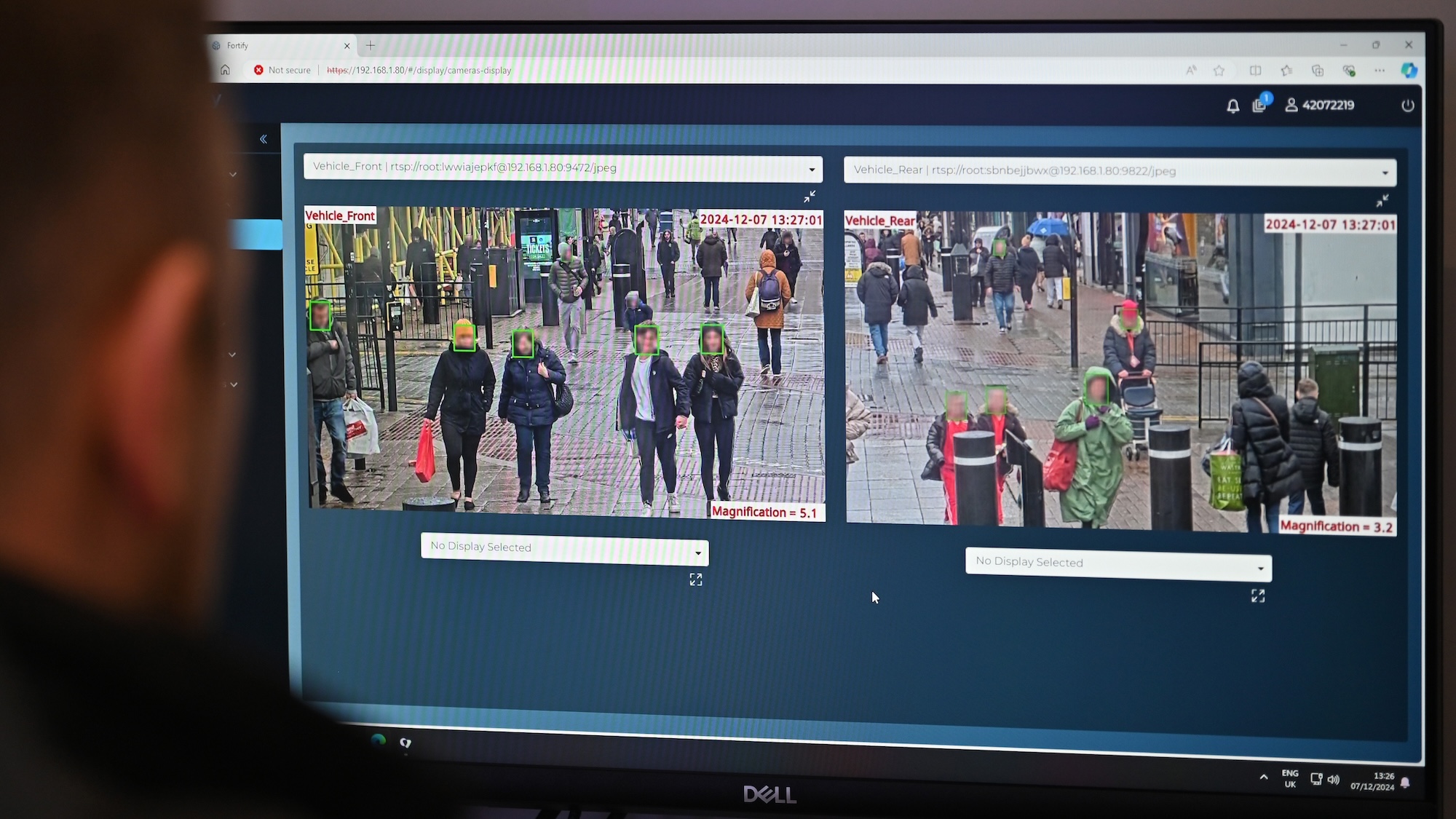Nicola Bulley: are armchair detectives and TikTok sleuths a help or hindrance?
Police chiefs were forced to issue a dispersal order after amateur internet detectives searched the local area

A free daily email with the biggest news stories of the day – and the best features from TheWeek.com
You are now subscribed
Your newsletter sign-up was successful
Police have urged an influx of amateur internet sleuths attempting to solve the mystery behind Nicola Bulley’s disappearance to leave the investigating to the professionals.
“Call it the true crime Netflix effect or the result of a popular culture soaked in glossy TV police procedurals”, but the “puzzling disappearance” of Bulley has prompted a “troubling surge” in armchair detectives attempting to get involved in the investigation, said the Irish Times.
Last week, police chiefs were forced to issue a dispersal order after crowds of “amateur sleuths” and “TikTok detectives” turned up to join the search for the missing mother-of-two, reported the Daily Mail.
The Week
Escape your echo chamber. Get the facts behind the news, plus analysis from multiple perspectives.

Sign up for The Week's Free Newsletters
From our morning news briefing to a weekly Good News Newsletter, get the best of The Week delivered directly to your inbox.
From our morning news briefing to a weekly Good News Newsletter, get the best of The Week delivered directly to your inbox.
‘Criminal investigation turned crowdsourcing’
Lancashire Constabulary issued a blanket 48-hour dispersal order for the village of St Michael’s on Wyre, after a group of men travelled to the area in order to search an abandoned house. The men reportedly “live-streamed” their attempts to break into the house close to where Bulley went missing, according to the Mail. Her friends said the abandoned building had already been searched “top to bottom” by police.
The group is just one of a number of amateur TikTok detectives including “self-titled psychics and body language experts” who are also broadcasting videos on social media apps to try and solve the mystery behind Bulley’s disappearance, said the Mail. Lancashire Police have warned “on more than one occasion” that, although they are grateful for offers of help, “they would prefer the investigation be left to trained detectives”, added the paper.
“For better and for worse, the internet has made it possible to turn criminal investigations” into “crowdsourcing initiatives at scale”, wrote Delia Cai for Vanity Fair last month, noting that in the wake of the Idaho murders in the US local police received more than “20,000 tips over about six weeks” before they eventually made an arrest. But the case also showed how the internet can encourage “rampant speculation in the name of civic duty and also clout” with members of the public needing little more than a “front-facing phone camera to become a talking head”, added Cai.
‘Police can’t beat local knowledge’
Some believe the hordes of people poring over cases like Bulley’s can prove useful. “My motto is ‘the internet is the new crime scene’,” Deanna Thompson, one of the amateur investigators from the Emmy-winning Netflix documentary Don’t F*** with Cats, told The Independent. She told the paper that so-called armchair detectives can be “incredibly helpful” as they often think differently to traditionally trained police officers.
A free daily email with the biggest news stories of the day – and the best features from TheWeek.com
Another internet sleuth, Marc, who is active on the “Unresolved Mysteries” group on Reddit, told the paper that the sheer number of people looking into these cases has its advantages as “‘the crowd’ has unlimited resources the police have not”.
Martyn Underhill, a veteran detective who worked on the Sarah Payne case in 2000, said that while armchair detectives can prove useful in solving missing person cases, it is important that public interest is carefully managed to protect crucial evidence.
Speaking to the Sky News Daily podcast he said that police “cannot beat local knowledge” but pointed out that the sheer number of people who wanted to get involved in investigations could be “frustrating” and disruptive for the police.
He added that since 2000, the explosion in the use of social media and technology meant that even greater numbers of people have become interested in investigations, leading to dangers that members of the public could destroy the crime scenes, along with crucial evidence.
In a press conference today, officers expressed “frustration at speculation and rumour” surrounding the case, said The Times. Detectives have been forced to “combat disinformation about her disappearance” and said they had been “inundated” with false information and theories, said the paper.
The police said they still have no evidence of a “criminal aspect or third party involvement” in the disappearance.
Sorcha Bradley is a writer at The Week and a regular on “The Week Unwrapped” podcast. She worked at The Week magazine for a year and a half before taking up her current role with the digital team, where she mostly covers UK current affairs and politics. Before joining The Week, Sorcha worked at slow-news start-up Tortoise Media. She has also written for Sky News, The Sunday Times, the London Evening Standard and Grazia magazine, among other publications. She has a master’s in newspaper journalism from City, University of London, where she specialised in political journalism.
-
 Switzerland could vote to cap its population
Switzerland could vote to cap its populationUnder the Radar Swiss People’s Party proposes referendum on radical anti-immigration measure to limit residents to 10 million
-
 Political cartoons for February 15
Political cartoons for February 15Cartoons Sunday's political cartoons include political ventriloquism, Europe in the middle, and more
-
 The broken water companies failing England and Wales
The broken water companies failing England and WalesExplainer With rising bills, deteriorating river health and a lack of investment, regulators face an uphill battle to stabilise the industry
-
 Why have homicide rates reportedly plummeted in the last year?
Why have homicide rates reportedly plummeted in the last year?Today’s Big Question There could be more to the story than politics
-
 How the ‘British FBI’ will work
How the ‘British FBI’ will workThe Explainer New National Police Service to focus on fighting terrorism, fraud and organised crime, freeing up local forces to tackle everyday offences
-
 Campus security is under scrutiny again after the Brown shooting
Campus security is under scrutiny again after the Brown shootingTalking Points Questions surround a federal law called the Clery Act
-
 ‘Stakeknife’: MI5’s man inside the IRA
‘Stakeknife’: MI5’s man inside the IRAThe Explainer Freddie Scappaticci, implicated in 14 murders and 15 abductions during the Troubles, ‘probably cost more lives than he saved’, investigation claims
-
 3 officers killed in Pennsylvania shooting
3 officers killed in Pennsylvania shootingSpeed Read Police did not share the identities of the officers or the slain suspect, nor the motive or the focus of the still-active investigation
-
 Dash: the UK's 'flawed' domestic violence tool
Dash: the UK's 'flawed' domestic violence toolThe Explainer Risk-assessment checklist relied on by police and social services deemed unfit for frontline use
-
 The ethics behind facial recognition vans and policing
The ethics behind facial recognition vans and policingThe Explainer The government is rolling out more live facial recognition technology across England
-
 Antigua's disturbing disappearances
Antigua's disturbing disappearancesUnder the Radar Worried families, baffled authorities, and growing concern as the island searches for answers to its missing persons epidemic